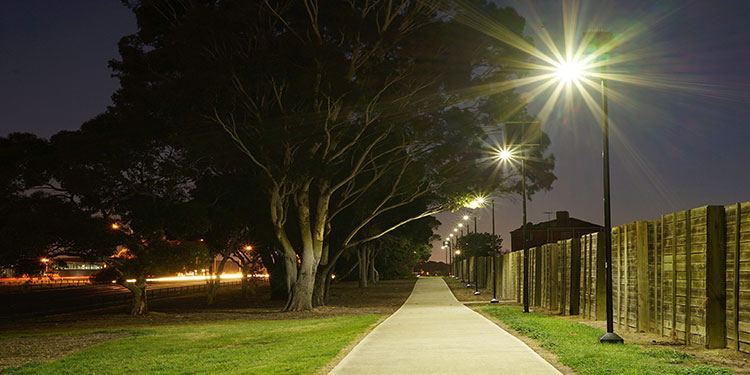
Nigeria’s drive to develop renewable energy is being spearheaded by the Niger Delta Development Commission (NDDC).
With the goal of lighting up every village in the area, Dr. Sam Ogbuku, NDDC’s Managing Director and Chief Executive Officer, has started the “Lighting Up the Niger Delta Project.”
The commission intends to implement policies to encourage the use of renewable energy as part of the solution to global climate change in order to carry out this bold and creative programme.
The world is not new to using solar energy to power gadgets, houses and workplaces. The same function will be served by solar street lights, which are the ideal option for the NDDC-led Lighting up the Niger Delta initiative due to their unmatched quality and great efficiency.
In addition, organisations in the public and commercial sectors who want to lessen their carbon footprints consider solar power to be a desirable alternative due to its inherent benefits.
With its initiative to light up the whole Niger Delta region, NDDC is spearheading the effort to address this worldwide issue in the nation.
Dr. Sam Ogbuku, the NDDC’s managing director, gave the assurance that the commission will keep enacting policies to encourage the use of clean energy as a component of the global climate change solution.
In his assessment of the outcomes of the United Nations Conference on Climate Change (COP 29) in Dubai, United Arab Emirates, he emphasised the need for a long-term solution to the environmental problem that the Niger Delta region faces as a result of the discovery and extraction of crude oil.
Additionally, during a recent presentation on renewable energy and carbon credits at the commission’s Port Harcourt headquarters by Asteven International Company, a specialist in the field, Dr. Ogbuku stated, “Our goal is to make sure that every community in the Niger Delta region is powered by solar, which is a cheap and renewable form of energy.”
Apart from illuminating the area, the commission intends to establish solar-powered industrial clusters that would enhance the agricultural value chain. He claims that using solar energy can help the NDDC create projects that the public needs and earn carbon credits. The commission hopes to retrieve the carbon credits that are locked up in some of these projects.
The NDDC has built roughly 56,786 solar street lights throughout communities inside the NDDC mandate states, with Dr. Samuel Ogbuku serving as the organization’s CEO.
The United Nations Sustainable Goals are important because they offer a thorough framework for sustainable development, which includes climate action. The solar energy investments made by NDDC are in line with these goals.
SDGs 7 (Affordable and Clean Energy) and 13 (Climate Action) are two of the SDGs that are specifically related to climate change and renewable energy. In order to help achieve these objectives, the NDDC will be investing in carbon credits and solar energy.
In addition to bringing in money, this will lessen the Commission’s reliance on government and Oil Company funding.
In order to reinforce the Commission’s resolve to implement a clean energy approach in its operations, a renewable energy consultant recommended that the NDDC develop a strategic plan to integrate clean energy into its projects encompassing buildings, agriculture, transportation, energy, environment, health and education.
Because all of the industries on the list contain significant amounts of carbon benefits and renewable energy assets with stranded values that the Commission needs to recover, this is somewhat significant.
During a recent meeting with NDDC representatives, Dr. Sunny Akpoyibo, the President of the Council on Renewable Energy, pointed out that the Commission had carried out numerous projects with significant carbon footprints.
He stated, “The NDDC is a global brand, and it will resonate globally if it adopts green projects.” In this manner, it will be able to release the projects’ imprisoned values.
Accessing the potential benefits that may be underutilised or neglected at the moment is necessary to unlock the trapped value in its projects.
Prof. Magnus Onuoba, the executive director of the locally owned renewable energy firm Asteven Group, stated that the Commission was in a good position to unleash the $2 billion carbon investment in the Niger Delta.
He stated that in order to do this, NDDC has to create a baseline of greenhouse gas emissions from the energy and agricultural sectors. He also mentioned that a feasibility study will be conducted to ascertain the potential outcomes of a baseline study in the areas of afforestation and decarbonisation.
Prof. Onuoha pledged that the consulting business would assess and realign the current renewable energy initiatives, extract value that has been trapped and operationalize the Commission’s carbon credit scheme.
